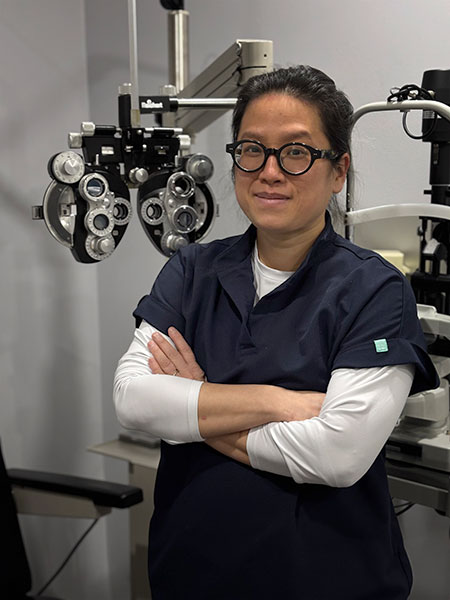About Referrals & Forms
Need a Referral to an Ophthalmologist? We’ve Got You Covered!
At Centre de Vision G&C, your eye health is our priority. If you require specialized care, we provide fast and hassle-free referrals to trusted ophthalmologists. Whether it’s for cataract evaluation, glaucoma management, retinal concerns, or any other eye condition, we ensure you get the expert attention you need with minimal delay.
Plus, with our comprehensive eye exams available six days a week, we can detect issues early and guide you toward the best treatment options.
We Handle Your Vision Forms – Fast & Hassle-Free!
Need an eye exam for official paperwork? At Centre de Vision G&C, we provide quick and accurate assessments for all types of vision-related forms, including:
- SAAQ Forms – Driver’s license vision assessments
- Government & Work-Related Forms – Ensuring you meet job requirements
- RCMP & GRC Forms – Vision tests for law enforcement applications
Our experienced team ensures your forms are filled out correctly and efficiently, saving you time and stress. Book your appointment today and let us take care of your paper work
Frequently Asked Questions
How often should I have an eye exam?
It’s recommended that adults have a comprehensive eye exam every 1-2 years, even if your vision seems fine. For children, their first eye exam should be at 6 months, followed by another at 3 years old, and then annually during school years. If you wear glasses or contact lenses or have a medical condition like diabetes, you may need more frequent exams.
What are the signs that I need glasses?
If you’re experiencing frequent headaches, eye strain, blurry vision (either up close or at a distance), difficulty seeing at night, or squinting to focus, these could be signs that you need glasses. A comprehensive eye exam will determine if corrective lenses are necessary.
What causes dry eyes, and how can I treat it?
Dry eyes can be caused by aging, certain medications, environmental factors, or prolonged screen use. Treatment options include artificial tears, prescription eye drops, and lifestyle adjustments such as taking breaks from screens. An eye doctor can recommend the best course of treatment based on the severity of your symptoms.
Are there ways to prevent common eye diseases like glaucoma or cataracts?
While you can’t always prevent eye diseases, there are steps you can take to reduce your risk. These include wearing UV-blocking sunglasses, eating a healthy diet rich in antioxidants, avoiding smoking, and having regular eye exams to catch any issues early. Managing conditions like diabetes or high blood pressure can also help protect your eye health.




